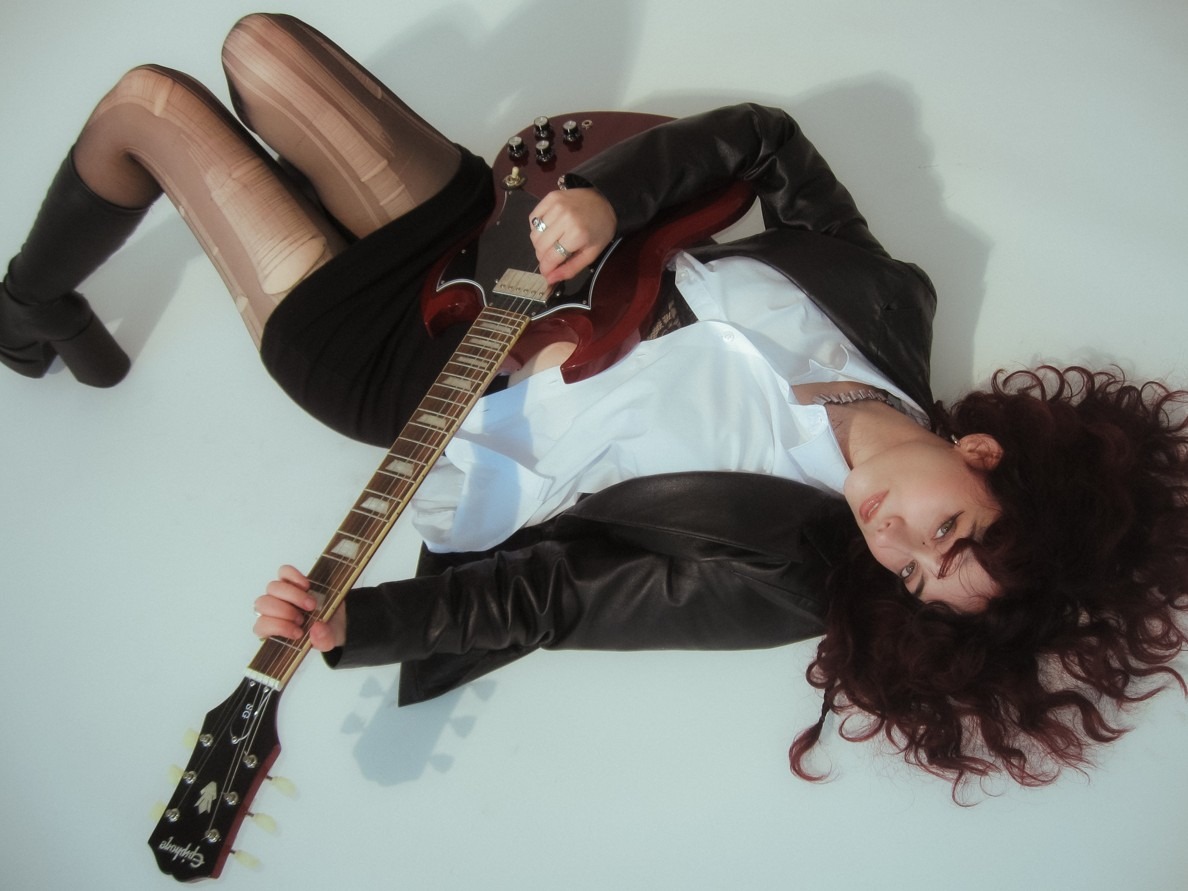“It tells your secrets for you”: A conversation with Lora Mouna on songwriting, her Syrian identity, and her new single ‘How Did We Get Here’
A stylistically versatile artist, Lora Mouna’s music is coloured by the kaleidoscopic blend of her own experiences. As a Syrian American, a graduate in opera, and an artist in the thriving New York indie-rock scene, she speaks with the same enthralling sincerity that characterises her lyricism.
Her new indie-rock single tells a tale of the embers of a romance burning out, leaving only the titular question, ‘How Did We Get Here’. She describes it as “a breakup song – but not for a relationship – for a situationship that slowly twisted and took a turn for the worse… I thought we had something really special, so it just left me thinking, how did we get here?”
The song marks an important point in her growth as an artist. Written back in 2022, Mouna mentioned that “it was one of the first songs I played on the guitar… I decided to pick up the guitar because of this person that I was talking to and the situationship I was in”. Ironically, the guitar – in which Mouna is “fully self-taught” – became the tool they would use to give voice to the emotions wrought by the end of her situationship.
Powerful and soaring vocals shine over the grit of an earthy, distorted guitar
Though relatively new to the guitar, Lora is far from an amateur when it comes to musicality. She told me that not only has she “played piano and sang all [her] life” but also “got an undergrad in vocal performance” after studying opera for four years. She believes this education, despite being “so different” from what she does now, provided her a foundation in which she is able to “tap into so many different styles”.
Nowhere is this classical background more apparent than in my favourite of Mouna’s songs, ‘That I’m Not’. Powerful and soaring vocals shine over the grit of an earthy, distorted guitar, channeling the same raw, emotive energy of an early 2000s Avril Lavigne or Alanis Morissette classic.
Speaking of her own artistic influences, Mouna was especially enthusiastic, “I love the band Momma, I love the artist Indigo De Souza… If you like my music, oh my gosh, you’ll love her, and she’s from North Carolina!” Regarding what she’s listening to, she also mentioned Dora Jar, Wet Leg, and Yeule.
It was her mother who first taught Mouna to play the piano at a young age
Mouna herself hails from Winston-Salem, North Carolina. “No, not the one you think” she laughs. “The high school that I went to, you would look out the window and there’d be a cow, like we were on a farm, essentially, people would go to school in their tractors!”
A second-generation Syrian immigrant, Mouna’s parents moved to America in their 20s. “My mom was so funny, because when she was coming from Syria. She was like, ‘Oh my gosh, America!’ She’s thinking about New York, she’s thinking about LA, and then she goes to meet my dad in like, a small-ass town, and she’s like, ‘where am I?’” Mouna’s mother is naturally thrilled to now be able to visit her daughter in the Big Apple.
It was her mother who first taught Mouna to play the piano at a young age, “She was a well-known pianist in Syria… she told me everything I know about music growing up”.
Mouna’s pride in her Middle Eastern identity and their activism for Syrian causes have presented their own challenges
Naturally, Mouna’s Syrian heritage seeps into her work. “I don’t ever want that to be forgotten when we talk about, like, the entirety of who I am.”. She continues, “I feel like growing up with my culture, it just allowed me to experiment with different scales and tones that aren’t in Western music, and I don’t have songs like that out yet, but I do have songs that I’ve written that I perform live, that do use the Arabic scale. And in that way, I can kind of show my Western audience something that they’re not used to”.
To clarify, Arabic scales (Maqam) use intervals smaller than the semitone, exposing Western listeners to complex sounds, moods and feelings beyond the ‘major’ and ‘minor’.
Mouna’s pride in her Middle Eastern identity and her activism for Syrian causes have presented their own challenges. “People see Syrian in my bio and make hateful comments based on their assumptions of my religion.” She doesn’t let this faze her; “Whatever, I just block them”.
Mouna is working steadily on her EP Phase of Becoming
Speaking with such effortless charm and candour throughout our interview, Mouna’s songwriting process is just as raw and honest. There were “times in my life where I haven’t written for months, and it’s because I wasn’t being honest with myself about something.” Fortunately, these blockades can be cleared: “Whenever I finally confronted myself, then the floodgates would open, and then I was able to write any lyric that I wanted. It’s like I was scared of what I was gonna say, you know. It tells your secrets for you, which is what’s so scary sometimes.”
Though there is currently no release date, Mouna is working steadily on her EP Phase of Becoming. In an industry rife with nepotism and manufactured authenticity, in which connections too often trump craft, it was a privilege to speak to an artist so self-made, genuine, and talented.
Mouna concludes: “I don’t want to blow up with my music, like Sabrina Carpenter per se, but I want to, like, just be able to have a fan base that is niche enough and tight enough that I can talk to them, and then also be able to do music for a living.”

Comments